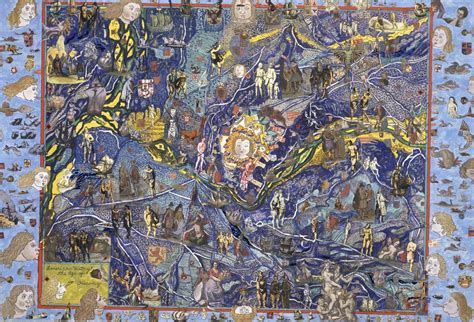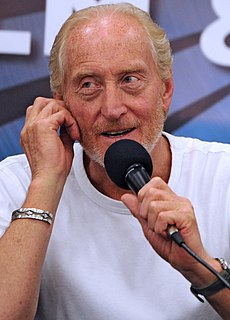A Quote by Gunter Grass
Over the years, I had something in principle against autobiographical writing altogether because memory plays tricks on us, and we also tend to reinvent ourselves. But there comes an age when one begins to observe life, and there are things that need time to mature, also in terms of literary form.
Related Quotes
It always seems to people that I'm avoiding saying, 'It's autobiographical,' but I really do believe that human beings make stories and they make themselves. If I told you the same story twelve years ago, I could have emphasized something different. The importance changes, the meaning of things shifts over time. Also, I think all art is autobiographical. Every endeavor is full of impressions of ourselves.
We can glut ourselves with how-to-raise children information . . . strive to become more mature and aware but none of this will spare us from the . . . inevitability that some of the time we are going to fail our children. Because there is a big gap between knowing and doing. Because mature, aware people are imperfect too. Or because some current event in our life may so absorb or depress us that when our children need us we cannot come through.
There is a connection, hard to explain logically but easy to feel, between achievement in public life and progress in the arts. The age of Pericles was also the age of Phidias. The age of Lorenzo de Medici was also the age of Leonardo da Vinci. The age of Elizabeth was also the age of Shakespeare. And the New Frontier for which I campaign in public life, can also be a New Frontier for American art.
No matter how physically faint, a photograph involuntarily whisper of something exquisitely carnal. The weeks, the years, whatever stretches of time separating our present from the photographs retire into the transparence of the shot and seem erased by it. We almost have to shake ourselves to overcome the feeling that we peer out at the other place, in that different age. Yet we are always aware of this illusory dislocation, for such is the ambiguity, in principle, that seduces us over and over again in the photographic experience.
I think that when people who've had success from a young age go through a train-wreck cycle, it's usually because they're working on someone else's terms, so they feel the need to rebel. But when it's something you've built, you don't have that same kind of resentment or angstiness. But it's also difficult to keep those standards for yourself.
The quality of writing attracts me to films, also who the other actors are, who the director is, where it's being shot. Any or all of those things. But if the writing is really appalling, then the money had better be really good. Sometimes you say yes to something you wouldn't always do because you need the money.
And sometimes, when the stars are kind, we read with an intake of breath, with a shudder, as if someone or something had 'walked over our grave,' as if a memory had suddenly been rescued from a place deep within us - the recognition of something we never knew was there, or of something we vaguely felt as a flicker or a shadow, whose ghostly form rises and passes back into us before we can see what it is, leaving us older and wiser.







































